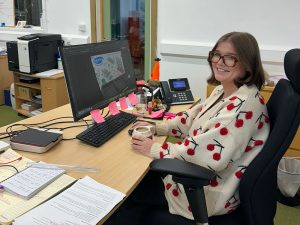
Use code 12DAYS for free shipping on all 12 days of Christmas promotional products
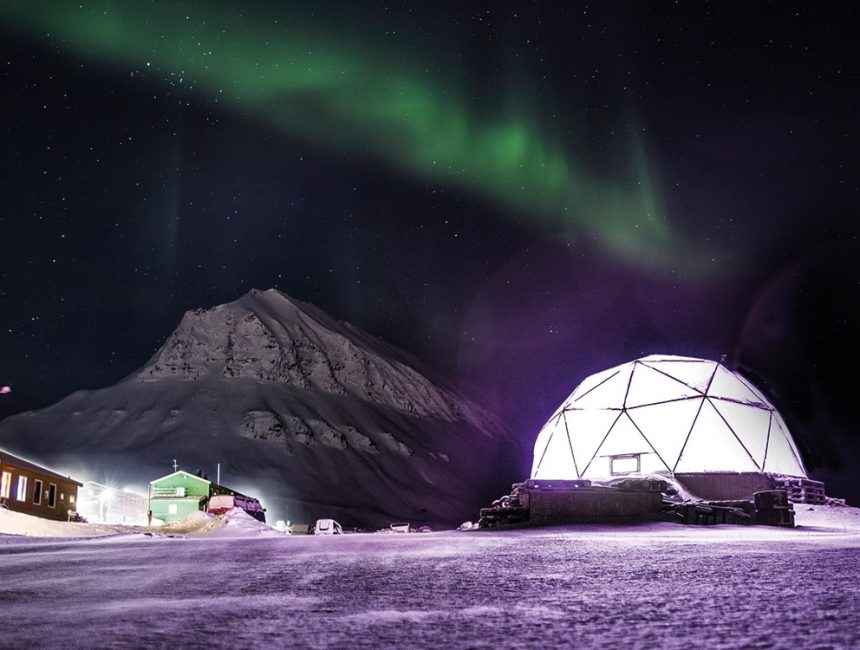
A vision of horticulture without limits pervades the pioneering work of Polar Permaculture Solutions. Scarcely could they have chosen a less conducive environment in which to grow crops. Arctic desert is the setting for their project to create sustainable fresh food production and self-sufficiency. And, to paraphrase Ol’ Blue Eyes, “if they can make it there…”
‘There’, specifically, is Longyearbyen, the world’s northernmost town, on the Norwegian Arctic isle of Svalbard. Endeavouring to grow fresh food at these latitudes is not an entirely new proposition. Svalbard itself has an intriguing history of innovation, fantasy and folly where horticulture is concerned. But Polar Permaculture’s attempt at this immense undertaking is pioneering in the sense that it brings efficient and avowedly non-invasive technologies to bear on the problem. Previous efforts sought to grind the environment into submission or transplanted foreign farms wholesale to the island. Instead, Polar Permaculture look to employ intelligent solutions that do not alter Svalbard’s ecosystem and which can function despite the harsh prevailing conditions on the island.

A lack of soil, lengthy spells of inhospitable weather, the Midnight Sun of summertime and the Polar Night of winter all render growing in the ground somewhat impractical. In view of these constraints Benjamin Vidmar, Director of Polar Permaculture, sought out a suitable indoor watering system for his greenhouses and laboratory. Complex irrigation systems that require extensive maintenance and rely on large quantities of water and power are certainly not suited to a remote project whose key aim is sustainability. An easily maintained, water efficient, power-free system was required. Enter AutoPot. The watering systems AutoPot have delivered provide Polar Permaculture with a simply assembled, easily serviced means of irrigation. Because these watering systems are gravity-fed and are only reactivated when the plants have expended all the water and feed available they require no electricity or timers. Thus they assist Benjamin and his team in proving the economic and ecological viability of growing on the island.
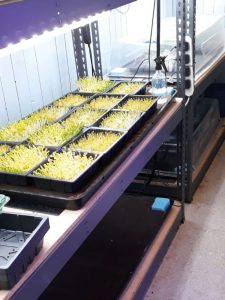
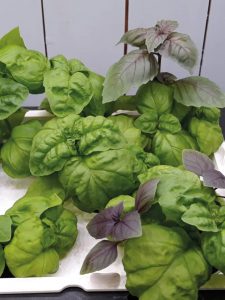
The minimal monetary and environmental cost of growing on Svalbard are far from being the only arguments win favour of self-sufficiency. Benjamin saw the effects of import dependency first hand working as a chef in Longyearbyen. Even in a progressive, developed country such as Norway an island like Svalbard, which is reliant on imported food, will often be viewed as a poor relation. To such islands the mainland sends its lowest grade fresh produce without much fear of complaint – because what are the islanders options? Often they have no alternative other than to accept what they are sent.
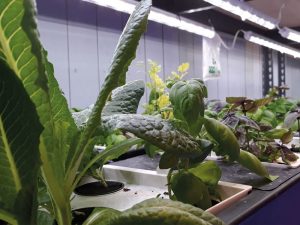
Ironically the tourist economy and relative proliferation of respected restaurants on Svalbard represent a great opportunity for anyone who is able to supply quality fresh food. Longyearbyen exceeds many large Norwegian cities for per capita fine dining choices. Into this thriving trade Polar Permaculture supply local grocery stores, hotels, restaurants, and private residences. In doing so they are sustaining the quality and diversity of the hospitality the island has to offer. Polar Permaculture are also drawing attention to what goes on behind the scenes in the tourist trade which, in and of itself, is of increasing interest to many visitors. Such is the level of interest that Benjamin and his team now offer a highly successful range of facility tours that exhibit their work.
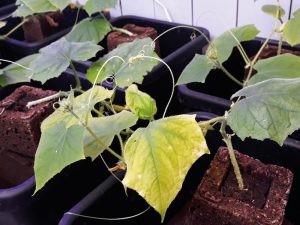
Aside from the issues of health, choice and lifestyle Longyearbyen faces a more serious problem as a result of it’s importdependency. The packaging of transported fresh goods and that of a disproportionately high quantity of processed goods creates a mountain of waste that either needs to be exported or dumped, often into the sea. This fact should dispel any lingering notion that growing fresh food on Svalbard is a frivolous or purely academic exercise. By way of contrast Polar Permaculture return to collect any packaging from their customers along with any organic and biological waste. The former is reusable. The latter is taken for composting at their farm where more than 10,000 red worms create effective, organic natural fertiliser for use in future food production.

Cold tolerant crops currently form the mainstay of Polar Permaculture’s food production. As the project gathers momentum they are looking to expand from their current output of lettuce, basil, coriander, dill and micro-greens temperature sensitive plants. Much will depend upon the success of the AutoPot systems which are currently in the early stages of planting but Benjamin’s belief and experience inform him that anything is possible.
So far he has had a huge list of specific issues to overcome. Shading arrangements have been devised to help defy the effects of twenty-four-hour light in the summer. Conversely, an fully-indoor laboratory has been established to allow food production from October to April when twenty-four-hour darkness prevails. Mites and aphids happily endure the climate and are as much of a concern to Polar Permaculture as to any grower. Soil may be produced in future but for now Benjamin has to to combine growing in imported, reusable substrates with experiments in new improvised growing media.
In many respects the most persistent and obstinate hurdles have been those of bureaucracy. Many existing restrictions limit or prohibit the import of flora and fauna. Where restrictions don’t exist there is often confusion and delay whilst the government establish new rules. This is, in part, a reasoned reaction to the damage caused by the import of outside species the Soviets used in their attempts to farm on the islands during the 80s and 90s. However, it is hard not to feel that some accommodation is necessary where farming is demonstrably contained. The awkward question of restrictions also revisits the idea of horticulture without limits. In future should we legislate against innovative but environmentally sensitive growing if the food produced offsets the damage being done by reliance on imports?
Home » Polar Permaculture
| Monday | 9AM-5PM |
| Tuesday | 9AM-5PM |
| Wednesday | 9AM-5PM |
| Thursday | 9AM-5PM |
| Friday | 9AM-5PM |
| Saturday | Closed |
| Sunday | Closed |